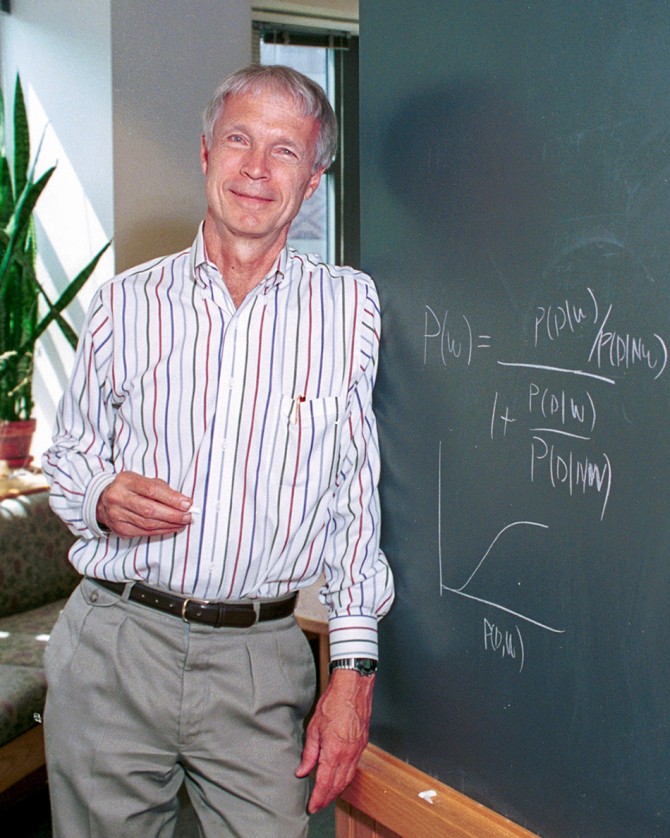John Hopfield, Ph.D. ’58, wins Nobel Prize in physics
By Beth Saulnier
John Hopfield, Ph.D. ’58, has received the 2024 Nobel Prize in physics. Hopfield, a professor emeritus at Princeton, shares the award with Geoffrey Hinton of the University of Toronto.
The two were honored for their work in training artificial neural networks; as the Nobel organization said in the announcement, they “have used tools from physics to develop methods that are the foundation of today’s powerful machine learning.”
Hopfield in particular was cited for inventing an eponymous network, based on principles of physics, “that can store and reconstruct images and other types of patterns in data.”
Hinton – who used Hopfield’s network as the basis for a different one, known as the Boltzmann machine – and Hopfield will share the cash award of 11 million Swedish kroner (about $1 million).
As Princeton reported, Hopfield learned of the award upon returning to the thatched cottage where he’s staying in England: “My wife and I went out to get a flu shot and stopped to get a coffee on the way back home,” he said, noting that they came back to find an “astounding” and “heartwarming” collection of emailed congratulations.
An undergraduate alum of Swarthmore, Hopfield studied at Cornell under theoretical physicist Albert Overhauser, who went on to win the National Medal of Science.
“He [Overhauser] was enormously supportive as a listener and critic when I went to see him, but finding direction and resolving technical theoretical issues were entirely my problem,” Hopfield recalled in a 2018 essay reflecting on his life and career. “The great gift he gave me was ownership of an interesting question, and total responsibility for research and progress.”
Hopfield’s long career has included work at Bell Labs and the California Institute of Technology, as well as more than 25 years at Princeton.
Among his many awards and honors are a MacArthur “genius grant,” the Benjamin Franklin Medal in Physics and the World Cultural Council’s Albert Einstein World Award of Science.
“To me – growing up with a father and mother both of whom were physicists – physics was not subject matter. The atom, the troposphere, the nucleus, a piece of glass, the washing machine, my bicycle, the phonograph, a magnet – these were all incidentally the subject matter,” Hopfield wrote in the 2018 essay.
“The central idea was that the world is understandable, that you should be able to take anything apart, understand the relationships between its constituents, do experiments, and on that basis be able to develop a quantitative understanding of its behavior. Physics was a point of view that the world around us is, with effort, ingenuity and adequate resources, understandable in a predictive and reasonably quantitative fashion. Being a physicist is a dedication to a quest for this kind of understanding.”
Beth Saulnier is editor-in-chief of Cornellians.
Media Contact
Get Cornell news delivered right to your inbox.
Subscribe

